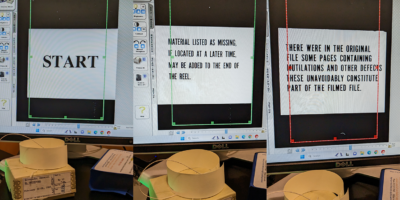By Rafael Davis Portela
Teaching is a contradictory activity. Even though it is social and full of human interaction by its nature, the traditional format of classes can often make the educator feel very much alone. Your successes and failures are most of the times experienced alone, and you must rely on yourself and your personal observations to improve. Sure, there are mechanisms of feedback, such as formal observations by other professors once every semester, student evaluations at the end of the course, and spaces like Visible Pedagogy where we can discuss issues and share approaches. But there is something about learning by watching others that makes a difference.
Being an international student who is unfamiliar with the U.S. educational system and its particularities, visiting a class and observing a professor in action proved to be even more important to me. It answered many questions that I had, and some that I wouldn’t even think of: What kind of clothes does one wear? How informal can one be in class? What kind of jokes can be used to lighten the mood?
The best part of the visit, however, was the inspiration I got from the techniques and activities the professor used. For instance, he came up with an interesting way of giving collective feedback. He identified the most common grammar/formatting mistakes from a previous assignment and created from them a quiz to be answered together by the whole class. The quiz was set up in such a way that, once answered, it became a quick guide students could use in the future to avoid common mistakes. In sum, instead of merely downloading existent grammar guides, he created a new material that fitted perfectly the needs of his students, since it came from them. It could be even more engaging if the students were part of the construction of the quick guide, if they were in charge of collecting the mistakes and generating the guide themselves, with the supervision of the professor. I am planning to try something like that on my next semester.
The whole experience was so fruitful that I spent the whole ride home thinking of how visiting each other’s classes could (and should) be done in an organic way, as a required activity for doctoral students. Why do we spend the first year doing trivial tasks for professors, like summarizing books, when we could be investing that time in visiting different professors in class, learning from the experience of others, discussing and writing about their techniques? That would be virtually costless and would prepare us to deal with the reality of teaching, making us better educators in general.
Rafael Davis Portela is a doctoral student in History at the Graduate Center.









Barry Goldberg
Thanks, Rafael — that’s a good suggestion and one I’ll try to implement in my “Writing and History” class next term. Very much agree on the value of observing others teach. We should all do more of this.